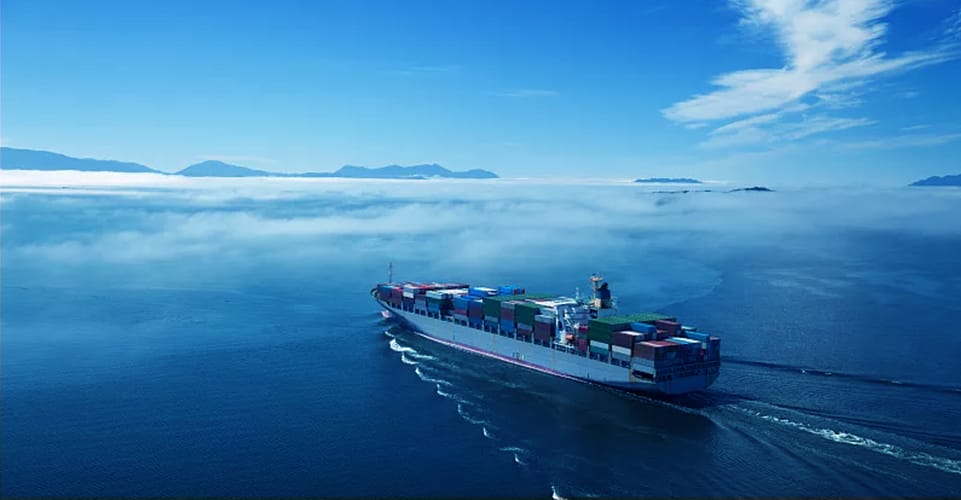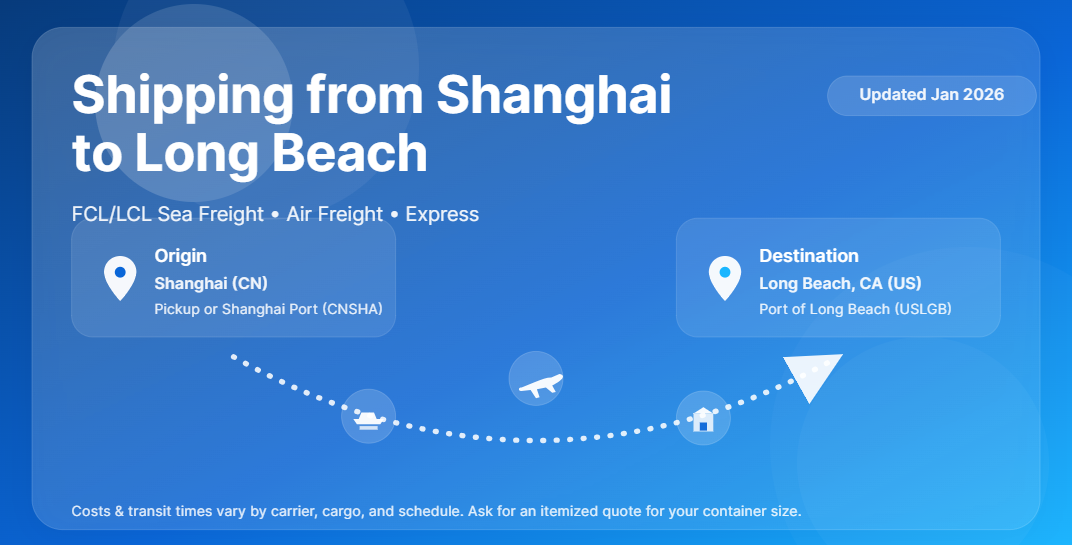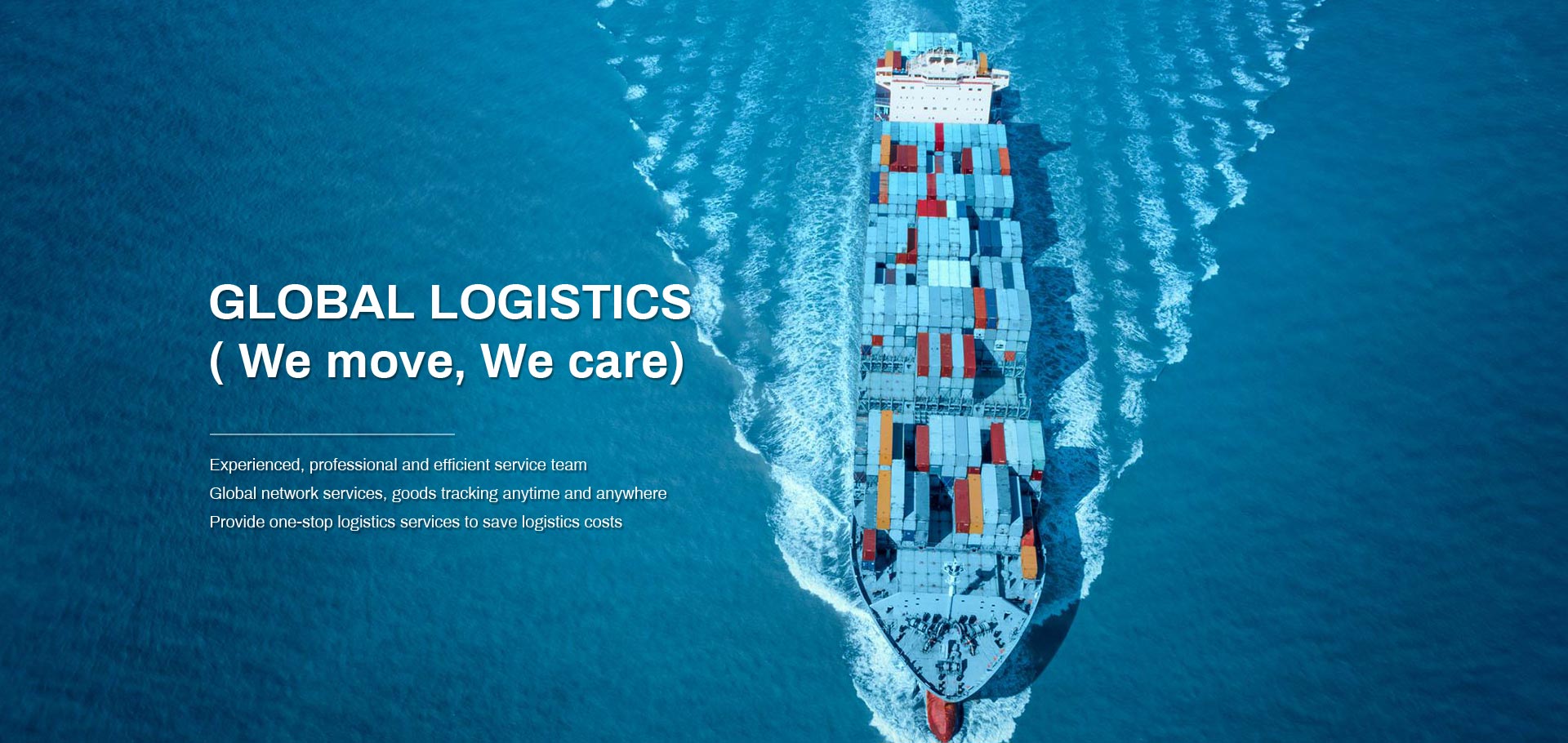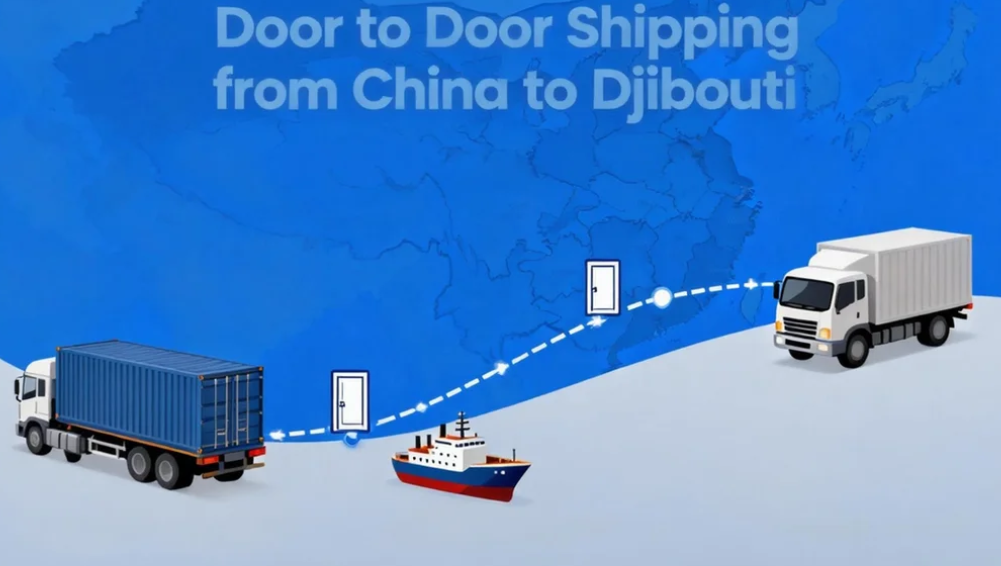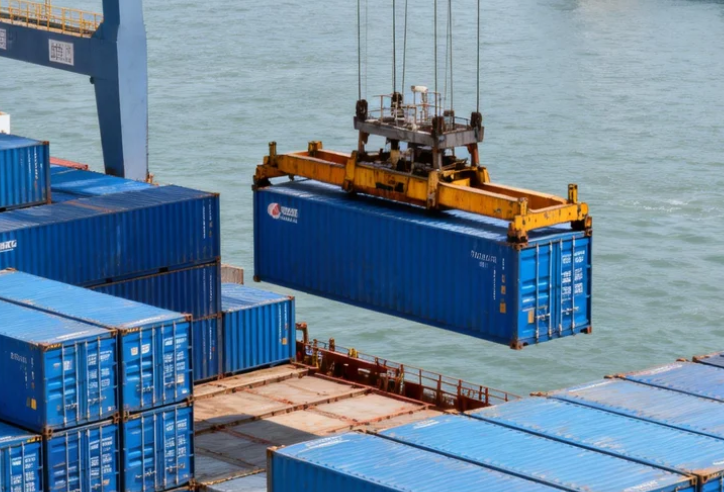Are you curious about the container shipping costs from China to Turkey?
Understanding these costs is crucial for businesses looking to import goods efficiently. In this article, we will explore the key factors influencing shipping expenses, from the shipping route and container size to the differences between FCL and LCL shipping methods. In this comprehensive guide, we’ll break down the costs, additional fees, and offer valuable tips to help you navigate the complexities of international shipping.
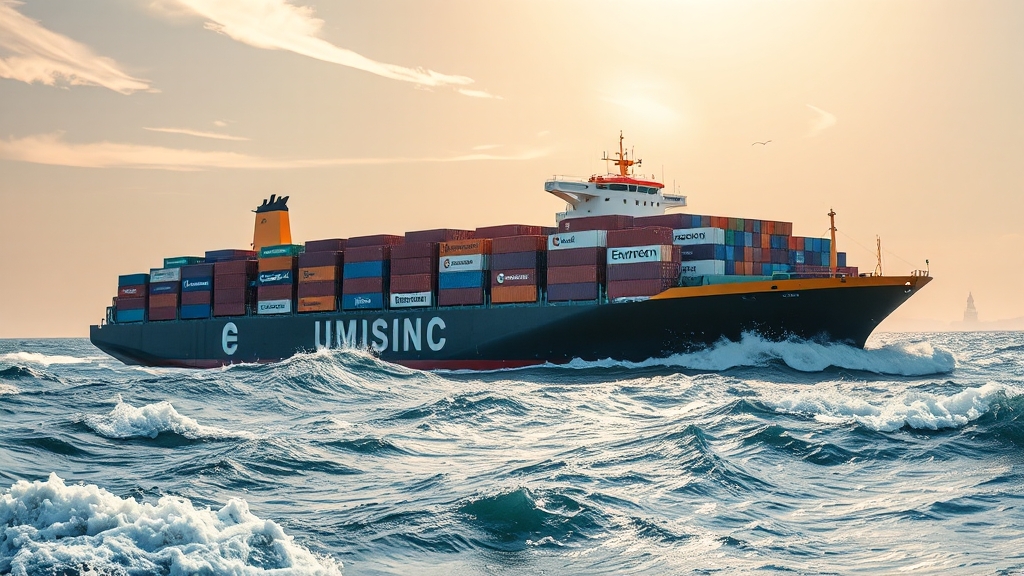
Understanding Container Shipping Costs from China to Turkey
Container shipping costs are a critical aspect for businesses and traders looking to import goods from China to Turkey. Understanding these costs involves examining various factors that influence pricing, including shipping routes, container sizes, and the mode of transport. The costs can vary significantly based on these elements, making it essential for importers to have a comprehensive understanding of what affects shipping expenses.
When considering container shipping, it is important to note that rates can fluctuate due to market conditions, global fuel prices, and seasonal demand. For instance, peak seasons such as Chinese New Year can drive prices higher due to increased demand for shipping services. Therefore, it’s crucial to stay informed about current market trends to budget effectively for shipping costs.
Key Factors Influencing Shipping Costs
Shipping Route and Distance
The shipping route is one of the primary determinants of container shipping costs. The distance between the port of departure in China (such as Shanghai, Shenzhen, or Ningbo) and the destination port in Turkey (like Istanbul or Mersin) directly impacts the cost. Longer distances generally incur higher fuel and operational costs.
Furthermore, the choice of shipping lane can influence transit times and costs. Some routes may offer quicker transit times at a premium rate, while others may be more economical but take longer. For example, shipping from Shanghai to Istanbul may have different costs compared to shipping from Qingdao to Izmir due to varying distances and port tariffs. Importers should also consider shipping routes from China to USA for comparison.
Container Size: 20ft vs. 40ft
The size of the container plays a significant role in determining shipping costs. Typically, 20ft and 40ft containers are the most commonly used for international shipments.
| Container Size | Capacity | Average Cost (Approx.) | Suitability |
|---|---|---|---|
| 20ft | 28-30 CBM | $800 – $1,500 | Smaller shipments or heavy cargo |
| 40ft | 56-60 CBM | $1,200 – $2,500 | Larger shipments or bulk goods |
Choosing between a 20ft and a 40ft container depends on the volume of your cargo. While 40ft containers may seem more economical for larger shipments, it’s essential to consider the nature of your goods and whether they can fill the larger space efficiently. For detailed cost comparison, importers can check 20 ft container shipping cost from China to USA.
Mode of Transport: FCL vs. LCL
There are two main modes of transport in container shipping: Full Container Load (FCL) and Less than Container Load (LCL).
FCL refers to a shipment where an entire container is used for a single consignee. This is often the preferred choice when the shipment is large enough to justify the cost of a full container. FCL typically offers a lower cost per unit of cargo compared to LCL because the entire container is dedicated to one shipment, thus reducing handling and port fees.
LCL, on the other hand, is used when shipments do not fill a whole container, allowing multiple consignees to share container space. While LCL can be cost-effective for smaller shipments, it may incur additional charges for handling and increased transit times due to the need to consolidate cargo. For more insights on this subject, refer to what is LCL and FCL in shipping.
Ultimately, the choice between FCL and LCL depends on the volume and nature of your goods, as well as your budget. Understanding these factors will empower importers to make informed decisions and optimize their shipping costs effectively.
In conclusion, comprehending the intricacies of container shipping costs from China to Turkey is essential for any importer. By considering the shipping route, container size, and transport mode, businesses can make informed choices that align with their financial and logistical goals. For professional assistance and cost-effective solutions, consider partnering with Dantful International Logistics, a highly experienced and quality-focused freight forwarding service.
Shipping Costs for Containers from China to Turkey
When importing goods from China to Turkey, understanding the shipping costs associated with container transport is crucial for effective budgeting. Container shipping costs can vary significantly based on several factors, including container size, shipping method, and additional fees. Below, we’ll break down the costs for both 20 ft and 40 ft containers, as well as provide a comparison of FCL (Full Container Load) and LCL (Less than Container Load) shipping options.
20 ft Container Shipping Cost from China to Turkey
The cost of shipping a 20 ft container from China to Turkey typically ranges between $1,000 to $2,500, depending on various factors such as the port of departure, shipping service type, and carrier. Here’s a detailed cost breakdown:
| Cost Component | Estimated Cost (USD) |
|---|---|
| Ocean Freight | $800 – $1,500 |
| Port Fees | $100 – $300 |
| Handling Charges | $50 – $150 |
| Customs Clearance Fees | $100 – $200 |
| Insurance (optional) | $50 – $100 |
| Total Estimated Cost | $1,100 – $2,500 |
The above estimate does not include any additional costs related to customs duties or taxes that may apply upon arrival in Turkey.
40 ft Container Shipping Cost from China to Turkey
For a 40 ft container, the shipping cost generally ranges from $1,500 to $3,500. Here’s the cost breakdown:
| Cost Component | Estimated Cost (USD) |
|---|---|
| Ocean Freight | $1,200 – $2,200 |
| Port Fees | $150 – $400 |
| Handling Charges | $100 – $250 |
| Customs Clearance Fees | $150 – $300 |
| Insurance (optional) | $100 – $200 |
| Total Estimated Cost | $1,800 – $3,500 |
Similar to the 20 ft container, the total cost for a 40 ft container does not encompass any customs duties or taxes incurred upon arrival in Turkey.
Comparison of FCL and LCL Shipping Costs
When deciding between FCL and LCL shipping, it’s essential to understand the cost implications of each method:
FCL (Full Container Load) typically entails a fixed price for a whole container, regardless of whether it is fully loaded. This shipping method is often more economical per unit if you are shipping large volumes.
LCL (Less than Container Load) is charged based on the volume of goods shipped. Although it can be more cost-effective for small shipments, the per-cubic-meter price can be higher due to additional handling and port fees.
| Shipping Method | Description | Cost Range (USD) |
|---|---|---|
| FCL | Ideal for full container loads | $1,000 – $3,500 |
| LCL | Charged by volume; suitable for small loads | $200 – $1,000+ depending on volume |
Ultimately, your choice between FCL and LCL should be guided by the volume of goods being shipped and your budget considerations.
Additional Fees and Charges
Understanding additional fees and charges is critical in calculating the total cost of shipping. Here are some common fees you may encounter:
Port Fees and Handling Charges
Port fees can vary by port and are typically charged for the use of port facilities. Handling charges cover the costs of loading and unloading goods at the port. Together, these charges can add up to a significant portion of your total shipping cost. It is essential to inquire about these fees when obtaining quotes from freight forwarders.
Customs Duties and Taxes
Upon arrival in Turkey, imports are subject to customs duties and taxes, which can vary based on the type of goods shipped. It is advisable to consult with a customs broker or your freight forwarder (like Dantful International Logistics) to gain a clearer understanding of potential duties and taxes applicable to your shipments. Typically, customs duties can range from 0% to 20% or more, depending on the product classification.
By being informed about shipping costs, additional fees, and choosing the right shipping method, you can effectively manage your budget for importing goods from China to Turkey. For a smooth shipping experience, consider partnering with a professional freight forwarder like Dantful International Logistics, which offers comprehensive services including Ocean Freight, Air Freight, and Customs Clearance to meet all your logistics needs efficiently and cost-effectively. To explore specific costs, you can check the Shipping From China to Turkey or Sea Freight From China to Turkey for more details.
Shipping From China to Middle East Countries:
- Shipping from China to Saudi Arabia
- Shipping from China to UAE
- Shipping from china to KUWAIT
- Shipping From China To EGYPT
- Shipping from China to Bahrain
- Shipping From China To Jordan
- Shipping From China To Israel
- Shipping from China to Qatar
- Shipping From China To IRAQ
- Shipping from China to Iran
Shipping Time from China to Turkey
Average Transit Times for Sea Freight
When considering container shipping from China to Turkey, one of the essential factors to evaluate is the average transit time. Generally, the transit time for sea freight can vary significantly based on the shipping route, the port of departure in China, and the destination port in Turkey.
Typically, the average shipping time for a 20ft or 40ft container from major Chinese ports like Shanghai, Ningbo, or Shenzhen to significant Turkish ports such as Istanbul or Izmir is approximately 25 to 40 days. Below is a simplified table summarizing the estimated transit times:
| Departure Port | Destination Port | Average Transit Time |
|---|---|---|
| Shanghai | Istanbul | 30-35 days |
| Ningbo | Izmir | 28-33 days |
| Shenzhen | Istanbul | 25-30 days |
| Guangzhou | Izmir | 35-40 days |
These times are estimates and can be impacted by additional factors, which brings us to the next section.
Factors Affecting Shipping Duration
Several factors can influence the shipping duration of containers from China to Turkey:
Weather Conditions: Adverse weather conditions, such as storms or heavy fog, can cause delays in shipping schedules.
Port Congestion: Busy ports often experience congestion, leading to longer waiting times for unloading and customs clearance. For example, the Port of Shanghai is one of the busiest in the world and may have longer processing times during peak seasons.
Shipping Line Schedules: Different shipping lines have varied schedules, and any changes in these schedules can impact your overall shipping time.
Customs Clearance: The efficiency of customs procedures in both China and Turkey can significantly affect the overall shipping duration. Delays in documentation or inspections can extend the time your cargo spends in transit.
Holidays and Peak Seasons: Major holidays or peak shipping seasons, such as the Chinese New Year, can lead to increased transit times due to higher volumes of shipments and reduced availability of shipping services.
Tips for Reducing Container Shipping Costs
Choosing the Right Freight Forwarder
Selecting the right freight forwarder is crucial for managing your shipping costs effectively. A professional and experienced freight forwarder, like Dantful International Logistics, can provide you with cost-effective solutions tailored to your needs. Consider the following when choosing a freight forwarder:
Experience and Reputation: Look for a freight forwarder with a strong reputation and extensive experience in shipping from China to Turkey.
Comprehensive Services: Choose a provider that offers a full range of services, including ocean freight, customs clearance, and insurance. This can help streamline your shipping process and potentially reduce costs.
Transparent Pricing: Ensure that the freight forwarder provides clear and transparent pricing structures, avoiding hidden fees and surprises.
Consolidating Shipments for Cost Efficiency
Another effective strategy for reducing shipping costs is consolidating your shipments. Here’s how:
Less than Container Load (LCL): If your shipping volume does not justify a full container, consider using LCL services. This allows you to share container space with other shippers, lowering your costs.
Bulk Shipping: If possible, plan to ship larger volumes at once. Bulk shipping can often qualify for discounted rates, minimizing per-unit shipping costs.
Scheduled Shipping: Regularly scheduled shipments can help you negotiate better rates with your freight forwarder. Consistency in shipping can lead to favorable long-term contracts.
By employing these strategies and partnering with a reputable freight forwarder like Dantful International Logistics, you can effectively manage your shipping costs and ensure a smooth shipping experience from China to Turkey.

Young Chiu is a seasoned logistics expert with over 15 years of experience in international freight forwarding and supply chain management. As CEO of Dantful International Logistics, Young is dedicated to providing valuable insights and practical advice to businesses navigating the complexities of global shipping.











